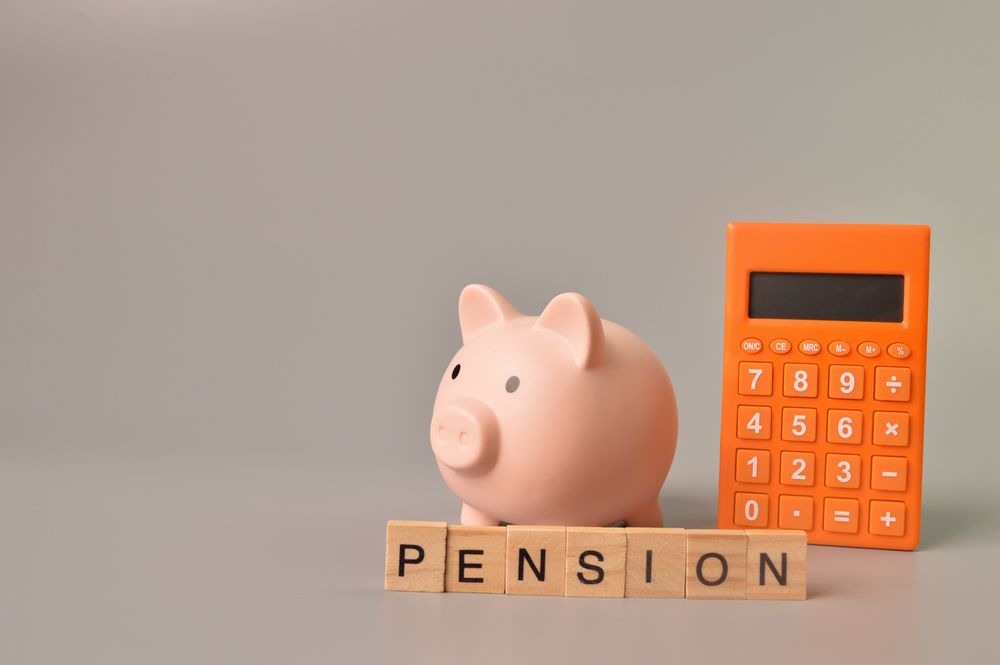News
Near £1bn reclaimed in overpaid pension tax: Check now

Savers have reclaimed nearly £1bn from HMRC in pension tax after accessing their pots for the first time under a “ridiculous” system. Check now to see if you’re owed cash.
Since the dawn of pension freedoms in 2015, savers have been forced to reclaim £970m in overpaid tax when flexibly withdrawing their money.
In the three months to December 2022, more than £45m was repaid to 14,335 people who were overtaxed on pension withdrawals – the highest Q4 figure on record, and the third highest for any three-month period since April 2015.
According to the HMRC figures, the average amount reclaimed in the last quarter stood at £3,141, which is slightly down on the previous three-month period.
This suggest more people are accessing smaller retirement pots, according to AJ Bell. It added the £1bn milestone “will inevitably be passed in 2023”.
However, as the HMRC statistics only capture the total repaid from people who have actively reclaimed their money, the true figure in overcharged tax could be much higher.

Wellness and wellbeing holidays: Travel insurance is essential for your peace of mind
Out of the pandemic lockdowns, there’s a greater emphasis on wellbeing and wellness, with
Sponsored by Post Office
Tom Selby, head of retirement policy at AJ Bell, said: “Depressingly, the true scale of the issue is likely much higher as many of those who have been overtaxed – in particular, people on lower incomes who are less familiar with the self-assessment process – will not go through the official process of reclaiming the money they are owed. As a result, they will be reliant on HMRC putting them right.
“It is ridiculous the tax system operates in this way and scandalous that the Government has done nothing to address it almost eight years since the pension freedoms were introduced.”
Pension overtaxation explained and how to reclaim
Pension freedoms rules allow anyone over the age of 55 access to their pension pots with the first 25% being tax-free.
When someone takes their first ‘flexible’ withdrawal from their defined contribution pension (over £10,000, and over the 25% tax-free lump sum), providers apply tax on a ‘month one’ basis so the withdrawal is counted as if the same amount of money will be taken every month during the financial year, rather than viewing it as a one-off withdrawal.
The emergency tax rate applied is usually calculated on a much higher annual withdrawal than the pension saver actually takes.
Selby said: “This means HMRC divides your usual tax allowances by 12 and applies them to the withdrawal, landing hard-working savers with shock tax bills often running into thousands of pounds.
“While those who take a regular income or make multiple withdrawals during the tax year should be put right automatically by HMRC, anyone who makes a single withdrawal will likely be left out of pocket.
“It is possible to get your money back within 30 days, but only if you fill out one of three HMRC forms to reclaim your money. If you don’t, you are left relying on the efficiency of HMRC to repay you at the end of the tax year.”
To date, some 285,000 forms have been filled. If you are affected, fill in one of these three claim forms which can be found on the Government’s ‘Claim a tax refund’ page.
They include:
- P55 – used by claimants when the payment didn’t use up the pension pot and individuals aren’t taking regular payments. It can only be used if a pension provider can’t refund you. HMRC received 8,496 claims in the three months to December 2022.
- P53Z – used by claimants where the payment used up your pension pot and you have other taxable income such as if you’re working or receiving benefits. HMRC received 4,170 forms.
- P50Z – used by claimants if the payment used up your pension pot and you have no other income in the tax year. HMRC received 1,669 claims.
It is possible that your pension provider may pay you back automatically. Otherwise, HMRC may post you a P800 tax calculation where you may be able to claim online or it will send you a cheque.
Tax workaround
Andrew Tully, technical director at Canada Life, shared this tip to help pension savers avoid the tax: “For customers making a pension withdrawal for the first time, a workaround is to initiate a small withdrawal of say £100. That will generate a tax code from HMRC which the pension provider will apply to any subsequent withdrawals.
“That will result in the tax being taken at source being far more accurate in many more cases, reducing the paperwork but equally importantly the customer receiving a more accurate withdrawal.”